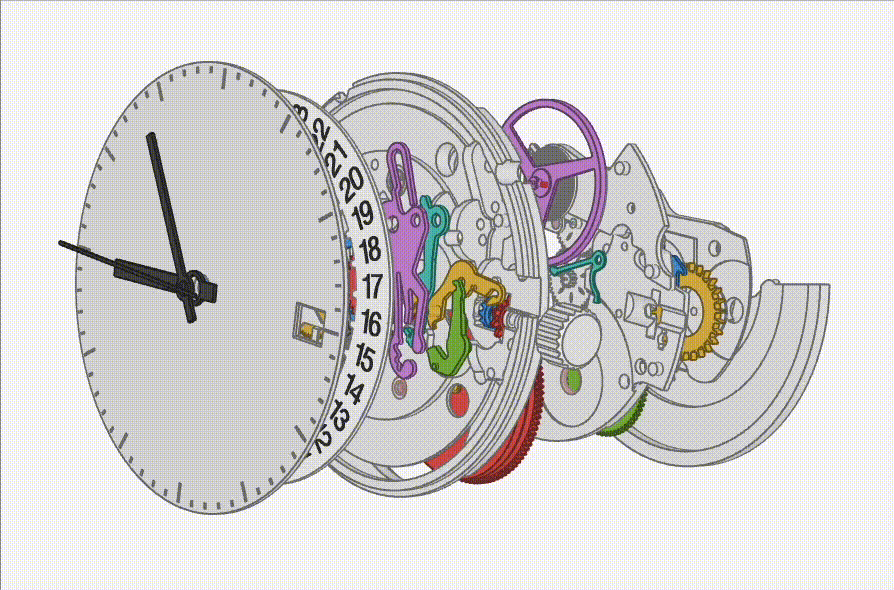What's in a World Sim?
World simulators are universally fun as hell. So many great video games fall into this category. Stone cold classics like SimCity and the Sims, Civilization and MS Flight Simulator, and the tragically under-appreciated Spore in which you take the reins on natural selection itself (OK, Spore isn’t an amazing game, but as a world simulator it’s fantastic). Or take modern epics like Grand Theft Auto and Red Dead Redemption — and the transcendental Goat Simulator. Playing a world simulation game is like taking a break by sitting on the throne of God.

World simulators extend beyond gaming. I would categorize Bartosz Ciechanowski’s Mechanical Watch simulator as a World Sim. Yes, it's a blog post, also a pedagogical tool, and a neat web technology demo — but Bartosz's visuals are based on legitimate simulations of mechanical behavior. Virtual springs and gears in his simulation operate a lot like the real thing. The spring mechanics in particular are a joy to interact with because they feel so real. If I needed to quickly get up to speed with the functions of a mechanical watch, I can’t imagine a better approach short of playing with a physical example (incidentally, some 3D printed mechanical watch simulators can be found on AliExpress or built in Lego).

Sims, sims everywhere
I’d argue that a World Sim can be any model of reality that’s both predictive and useful to understanding how our world works. That's a broad definition; we haven't even excluded paper atlases or the periodic table. That's fine! It’s fun to think about just how many different ways intelligent beings can go about modeling their world. Consider:
-
Digital Twins, digital copies of the real world, are used in many engineering contexts to predict how existing systems will behave. (Do people really use these? Or is this just an addictive buzzword? I admit I like the phrase a lot.)
-
AI models, all the rage right now, include many kinds of world sim. The 1x World Model is a fun recent example. Of particular interest to me is the tradeoff that AI models make, sacrificing longtail accuracy (hallucinations) to achieve incredible generalization & dynamic range.
-
Any engineering game (e.g. Poly Bridge)
-
Google Maps & Google Earth
Some visions of the metaverse portray it as a kind of World Sim — a one-to-one map of reality. Or maybe what we want from a virtual world is to bend all the annoyingly-strict rules of reality. Today's metaverse is famously just Roblox; not a world sim per se, but a win for the benders of rules!
